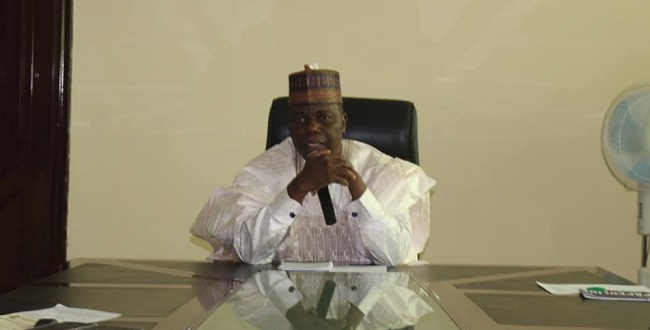The Director-General (D-G) of National Biotechnology Development Agency (NABDA), Prof Abdullahi Mustapha, has expressed the agency’s determination to consolidate the gains of investing in biotechnology to better the lives of Nigerians.

Abdullahi said this at the valedictory service held in honour of Prof. Chukwuemeka Omaliko, the pioneer D-G of NABDA at NABDA headquarters in Abuja on Wednesday, February 16, 2022.
He said the story of biotechnology was one of incremental gains in food and material production as well as in medical advancements.
He stressed that, as a research agency, NABDA had various projects and programmes lined up which would better the lives of Nigerians especially the poor.
According to him, any project that emanates from the laboratories of the agency will be of great benefit to the country in fulfilment of its mandate.
Abdullahi, who paid tribute to the late Omaliko, said the pioneer director-general was the founder of NABDA and, considering his enormous works, he was worth celebrating.
He maintained that building on Omaliko’s works, he would elevate the agency to greater heights of achievements for the benefit of Nigerians.
According to him, the late pioneer D-G gathered people of importance in the field of national biotechnology from within and outside the country.
“He linked the agency with so many important organisations that are the pillars of biotechnology in the country and outside.
“There is therefore no better man to celebrated than Prof Omaliko, considering his works,’’ Mustapha said.
Dr. Rufus Egbeda, D-G of National Biosafety Management Agency (NBMA), said death was a leveler of everyman and that the greatest test of a man was how he impacted other human’s while alive.
He eulogised the late Omaliko, saying he was instrumental to the establishment of NABDA which had given over 3,000 people a livelihood.
Egbeda also acknowledged that NABDA became pivotal to the establishment of his biosafety agency.
Prof. Alex Akpa, former acting director-general of NABDA, also enumerated the works of Omaliko and called him a detribalised Nigerian.
By Sylvester Thompson
